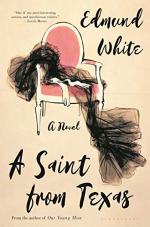|
This section contains 2,052 words (approx. 6 pages at 400 words per page) |

|
The Tension between Intellect and Desire
The novel explores the healthy tension between intellect and desire, or between reason and emotion, necessary for a fulfilling and satisfying emotional life. In addition, the novel argues the disastrous consequences when either energy is given more freedom than the other.
Years before she takes her vows as a nun, Yvette, something of an autodidact who teaches herself the classic philosophical works of Antiquity and the Renaissance, denies to her sister that she ever feels the dark tugs of lust. “Unbridled passion,” she tells Yvonne, “can be the most destructive human sentiment” (81). Denying desire, however, will not work. Living a life of the mind does not work. The novel takes its thematic cue from Plato’s famous allegory of the charioteer that Yvette shares with her sister in which the philosopher posits that the soul must control both reason and desire...
|
This section contains 2,052 words (approx. 6 pages at 400 words per page) |

|




